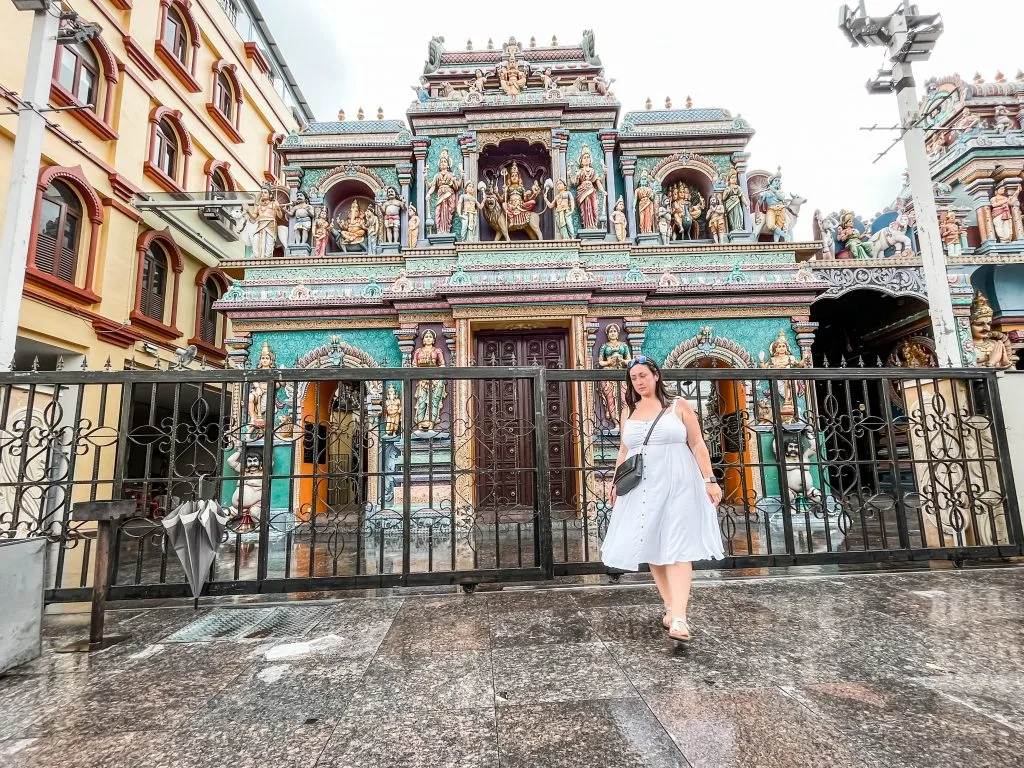Minimalism has worldwide impact that I showcase in this article.
I would venture a guess that most people in America think of minimalism as originating from Japan. Marie Kondo, a Japanese woman, is the most well-known minimalist icon. Despite minimalism’s influence in Japan, it’s not widely practiced.
Currently, I live in Tokyo and the average Japanese house I observe is more hoarder than minimalist. It seems like the minimalist Japanese home is more of a stereotype than a reality. But, that got me thinking about theories and concepts that align with minimalism.
First, I will start with the concepts that exist within Japan that are very minimalist in nature. Then, I will explore other ideas from around the world which embody the spirit of minimalism. You will be surprised how minimalism has such a worldwide impact.

Create your own version of minimalism. Use minimalism as a tool to achieve your dream life.
Japanese Minimalist Concepts
Wabi-sabi
This concept encompasses the beauty of imperfection, impermanence, and simplicity.
I loved that this concept embraces impermanence. So much of the accumulation that happens is because people think the item holds emotional value and therefore, must be kept. Part of the minimalist mind shift is accepting that items don’t hold value. Everything is in our life temporarily.
Zen
This concept is associated with the practice of meditation and the pursuit of enlightenment through simplicity and self-awareness.
Getting in touch with ones self is the most overlooked benefit of minimalism. Instead of pursuing happiness through things a minimalist seeks happiness through fulfilling their true desires. Emphasis on becoming better is central for minimalism worldwide.
Ikigai
This concept refers to one’s reason for being and the intersection of what one loves, what one is good at, what the world needs, and what one can be paid for.
I hesitated putting this concept on the list because for most people the probability of finding something that fits all these categories is unlikely. Remember, you can get good at something if it brings in the money you need to live the life you want to live.

Kaizen
This concept refers to the idea of continuous improvement, focusing on small, incremental changes rather than big, dramatic ones.
This sounds like the idea that people over estimate what they can accomplish in a day but underestimate what they an accomplish in a year. Taking steps in the right direction is always the right thing to do no matter how small and no matter how slowly.
Yugen
This concept refers to an awareness of the universe that triggers emotional responses too deep and mysterious for words.
I included a spiritual aspect because minimalism focuses on becoming our best selves. No matter what you call your connection to the universe there is an entire infinite beyond out there aside from our individual life and problems.
European Minimalist Concepts
Lagom – Swedish
This concept refers to the idea of balance and moderation, living a life that’s not too extravagant or too modest.
It makes a lot of sense to just have enough for a lovely life. You don’t need to be a billionaire to be happy, but having millions can give you a worry free calm life.

Hygge – Danish
This concept refers to the sense of warmth, coziness, and contentment that comes from simple pleasures and being surrounded by loved ones.
Connection is one of the most crucial elements of a minimalists life. Many people blame their inability to make changes on their life on their loved ones. If only more people would use connection as the reason to become better instead of the excuse to stay the same.
Ataraxia – Ancient Greek
This concept refers to the state of being free from disturbance, anxiety or trouble. It refers to tranquility of the mind.
The external action of minimizing our stuff is only a means to clearing our mind. Our life is our memories, which live in our mind. The more lucid we can keep our mind the more fulfillment we will have in our lives.
Sisu – Finnish
This concept refers to the ability to persevere and overcome adversity with determination and grit.
There is no easy path to minimalism. Becoming a minimalist is simply a choice that you have to make over and over again until you overcome the social hurdles along the path.
Asian Minimalist Concepts
Feng Shui – Chinese
This concept is the art of arranging objects and spaces in a way that promotes balance, harmony, and positive energy.
Drawing colorations between items and the energy of the universe is a long standing tradition. Builders designed buildings to orient towards the sun and align windows to frame the stars.
Santosa – Sanskirt
This concept refers to the practice of contentment and acceptance of one’s current circumstances.
The worst thing a person can do in the present is to complain about it. Complaining does nothing. Being content is accepting the present and not dragging it down with negative emotions.
Dharma – Hinduism and Buddhism
This concept refers to living in accordance with one’s purpose and path in life.
Instead of living in accordance with expectations, people should live their own way. External judgment overrules true purpose driven lives. We need to get back to living our own path instead of the one shoved down our throats.

Karma – Hinduism and Buddhism
This concept refers to the belief that one’s actions in this life will determine one’s fate in future lives.
Minimalism worldwide defiantly connect with the idea that our actions create a ripple effect. The understanding that our behavior will have an impact on our future selves is motivating for a lot of minimalists.
African Minimalist Concepts
Ubuntu – Zulu
This concept refers to the belief in a universal bond of sharing that connects all humanity.
Technology has both connected and disconnected us from humanity. The feeling of being in this life together has drifted away and been replaced with endless fighting among communities. We need to get back to the idea of connection and togetherness.
American Minimalist Concepts
Simplicity
This concept refers to the state or quality of being simple; freedom from complexity, elaboration, or division into parts.
Sometimes people feel like simple is scary because it’s too easy. I love easy. While the initial steps towards minimalism can be tricky for newbies, the maintenance and long term enjoyment of life is so much superior than my old consumer life.
Harmony
This concept refers to the state of being in agreement or concord; a consistent, orderly, or pleasing arrangement of parts.
The buzz word so long has been balance, which is a phantom goal. Seeking harmony allows for ebbs and flows in your life and priorities.
Minimalism Worldwide Influences
For early humans they may have been necessary minimalists. They probably didn’t have a choice in the matter and being minimalist was the standard.
These days someone has to choose to be minimalist or the opposite will take over their life. Minimalism is a worldwide concept that draws influence from cultures, religions, and ideas globally.
You get to decide which parts of minimalism work for you and which do not.
Your life gets to be different based on your choices about stuff. If I hadn’t given up my stuff, I would never have been able to travel the globe for the past 2.5 years with my family. Choices have consequences, whether good or bad.



Leave a comment